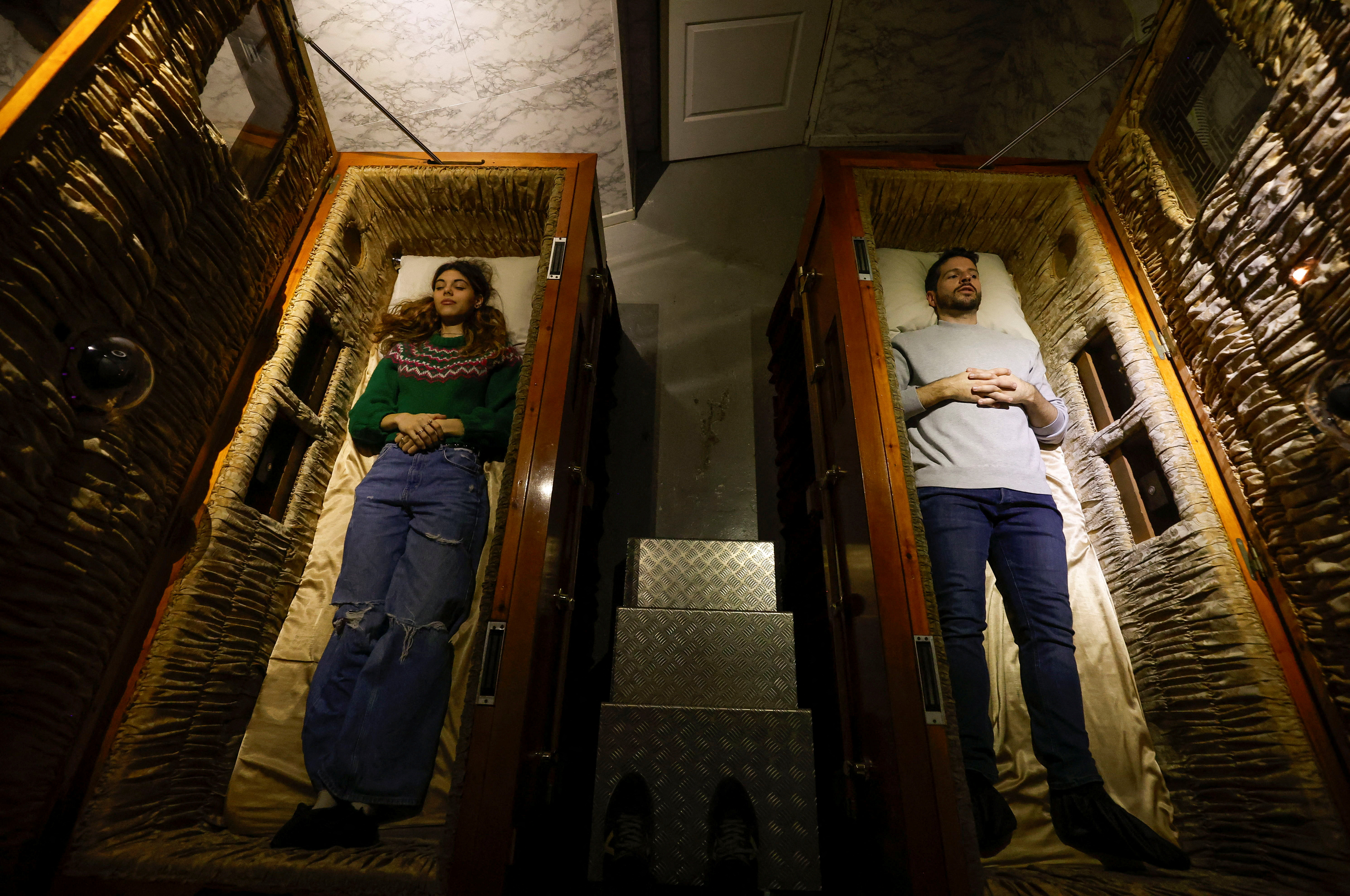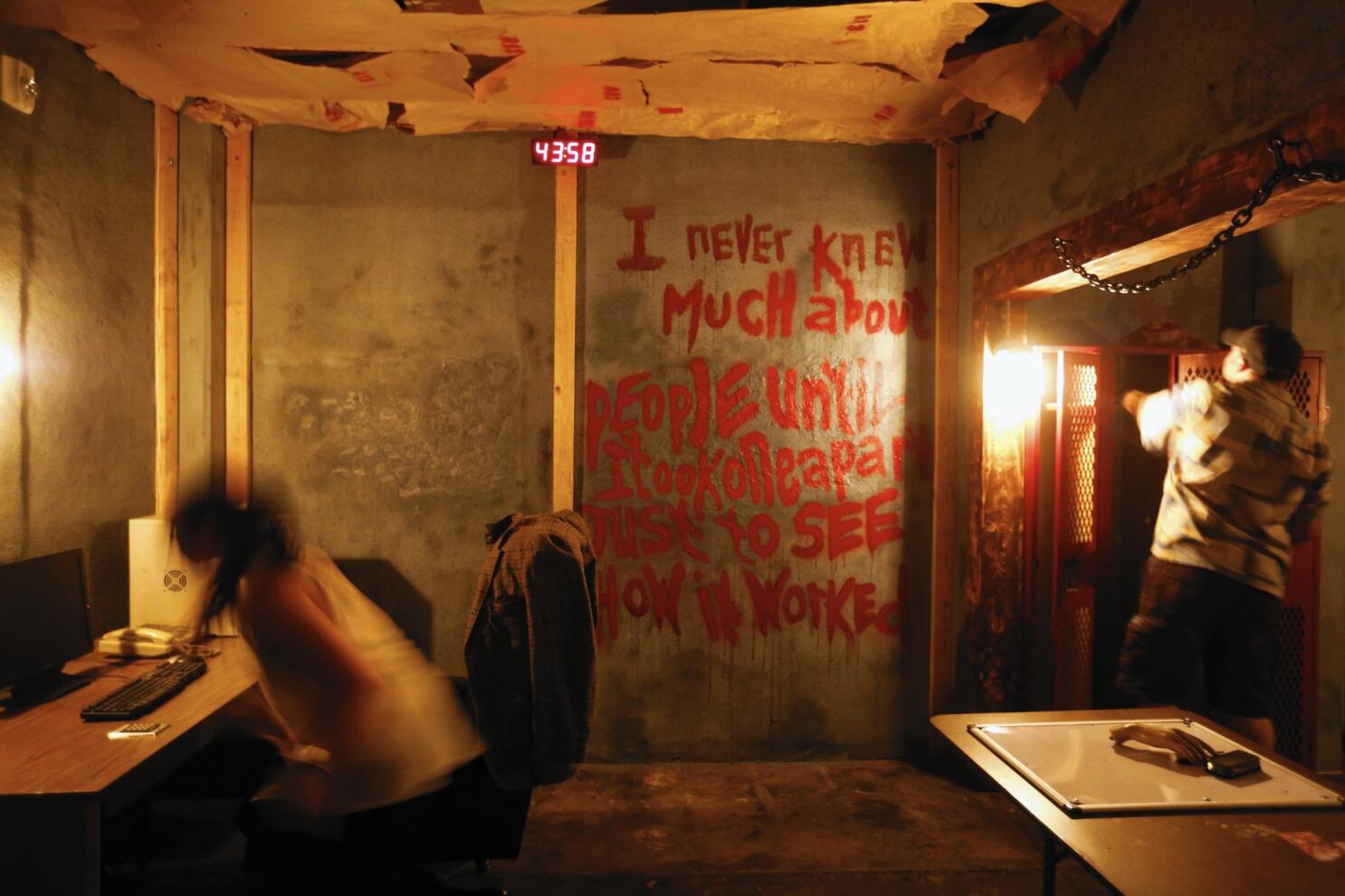Thrilling Escape Room in Minneapolis Mall of America-- Get Now
Group Techniques: Just How to Collaborate Successfully in a Getaway Room
Browsing the intricacies of a getaway room necessitates greater than plain enthusiasm; it calls for a well-coordinated strategy based in clear interaction, calculated duty projects, and skilled time management. Groups have to proactively listen to every participant's understandings, appoint duties that line up with individual toughness, and keep regular check-ins to ensure emphasis and stop redundancy. By promoting an environment that values cohesion and flexibility, groups can considerably increase their effectiveness and success prices. The subtleties of these strategies can change the experience, yet exactly how specifically can they be applied to make the most of the potential for success?
Establish Clear Communication

To facilitate clear interaction, it is vital to designate a central point of call for details dissemination. This role entails summarizing findings and proposed approaches to make sure everyone continues to be on the exact same web page. Additionally, adopting a methodical method to discussions can protect against disorderly exchanges. Brief, focused updates from each team participant can maintain the group notified without frustrating them with details - best escape room.
Assign Duties Purposefully
While clear interaction sets the foundation for effective teamwork, assigning functions purposefully ensures that each team participant's strengths are made use of successfully. In a retreat space scenario, the time-sensitive and intricate nature of difficulties requires an efficient method to job delegation. By determining and leveraging specific proficiencies, teams can enhance their analytic abilities and boost general efficiency.
Somebody with a keen eye for detail might excel in locating hidden things, while a sensible thinker can be much better fit to resolving challenges. This role frequently requires strong organizational and interpersonal skills.
Second, guarantee that roles are adaptable and versatile. As new difficulties arise, the team should have the ability to pivot, reallocating tasks as required. This adaptability aids preserve energy and stops traffic jams that could occur as a result of stiff function jobs.
Inevitably, a calculated approach to function job not just makes the most of the staminas of each staff member however also cultivates a natural atmosphere, driving the group in the direction of home an effective escape.
Use Diverse Abilities
Identifying and using the varied abilities within your group can significantly elevate your performance in a getaway space. Each employee brings one-of-a-kind staminas to the table, and effectively leveraging these capabilities can expedite analytic and enhance total performance. As an example, a group member with solid analytical abilities might excel at understanding complicated codes or patterns, while one more with keen observational capabilities may promptly identify hidden ideas that others might ignore.
Reliable communication is crucial to making use of these varied skills. Motivate staff member to articulate their insights and concepts quickly, guaranteeing that all potential solutions are taken into consideration. This inclusive strategy promotes a vibrant atmosphere where imagination and vital reasoning can prosper. Additionally, assigning jobs that align with each participant's strengths can protect against traffic jams Look At This and ensure that progression is continuous.
Furthermore, variety in abilities frequently translates to variety in believing designs, which is vital in an escape room setup. While some difficulties may call for sensible thinking and precision, others may gain from imaginative and association of ideas. By acknowledging and leveraging this variety, teams can resolve a more comprehensive variety of obstacles more properly, thereby enhancing their possibilities of a successful escape.
Manage Time Effectively

First, allot preliminary mins for a quick survey of the space. Identify noticeable puzzles and divide jobs based on staff member' toughness, making sure that nobody is still. Establish internal time checkpoints to examine progress regularly; as an example, objective to have half the puzzles solved by the mid-point of the game. This technique can help maintain the team focused and avoid time from slipping away unnoticed.
In addition, prevent one-track mind. If a problem is taking also long, turn team members or go on to another challenge, returning later with fresh perspectives. Interaction is paramount-- maintain every person upgraded on addressed problems and staying jobs to avoid repetitive initiatives.
Lastly, use any kind of hints or hints sparingly yet strategically - best escape room. Understanding when to request for assistance can save important time. By adhering to these time monitoring concepts, teams can considerably enhance their opportunities of an effective and pleasurable retreat space experience
Debrief and Reflect
Representation is a vital element of team growth and improvement in the context of retreat rooms. When the obstacle is finished, whether successfully or otherwise, it is critical for address the team to take part in a structured debriefing session. This procedure permits team members to analyze their performance, determine staminas, and pinpoint locations for enhancement.
Begin the debrief by reviewing what worked out. Highlight particular circumstances of reliable interaction, problem-solving, and cooperation. Acknowledging these favorable behaviors reinforces them and motivates their rep in future challenges.
Following, resolve the challenges ran into. Go over minutes of confusion, miscommunication, or inadequate methods. Encourage an open and constructive discussion where group members can share their point of views without worry of criticism. This cultivates a society of continual renovation and knowing.
Final Thought
In conclusion, successful collaboration in an escape area is predicated upon clear communication, tactical function assignments, the effective use of varied abilities, and competent time monitoring. By creating a natural and adaptive team setting, the chance of effectively addressing puzzles and accomplishing the goal of escaping the area is dramatically enhanced.